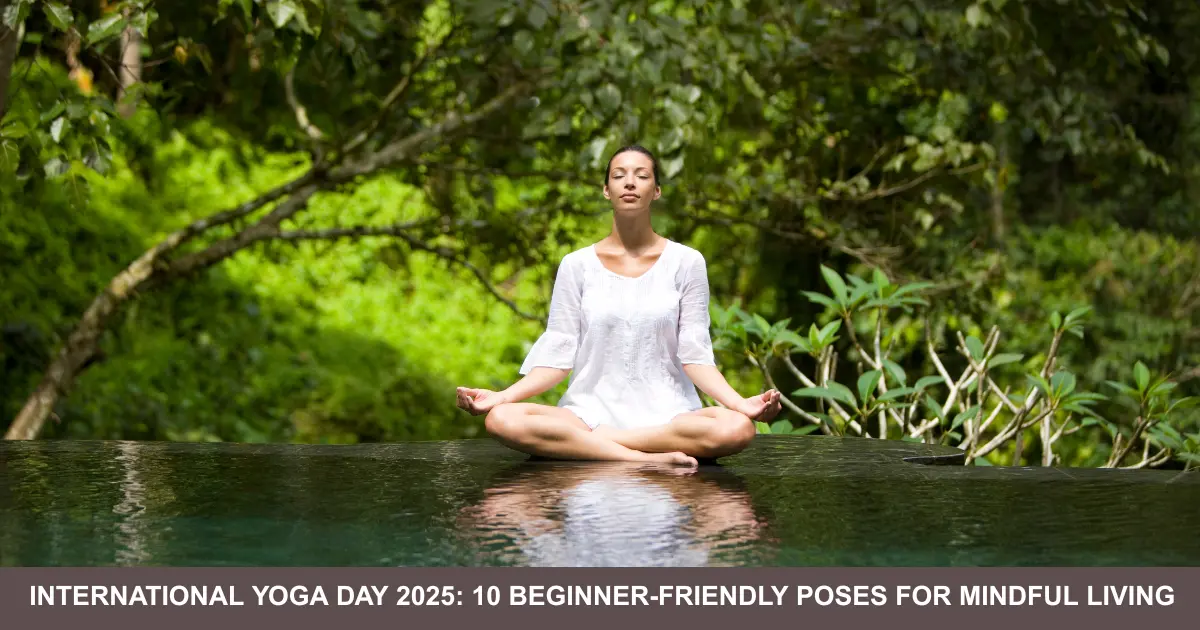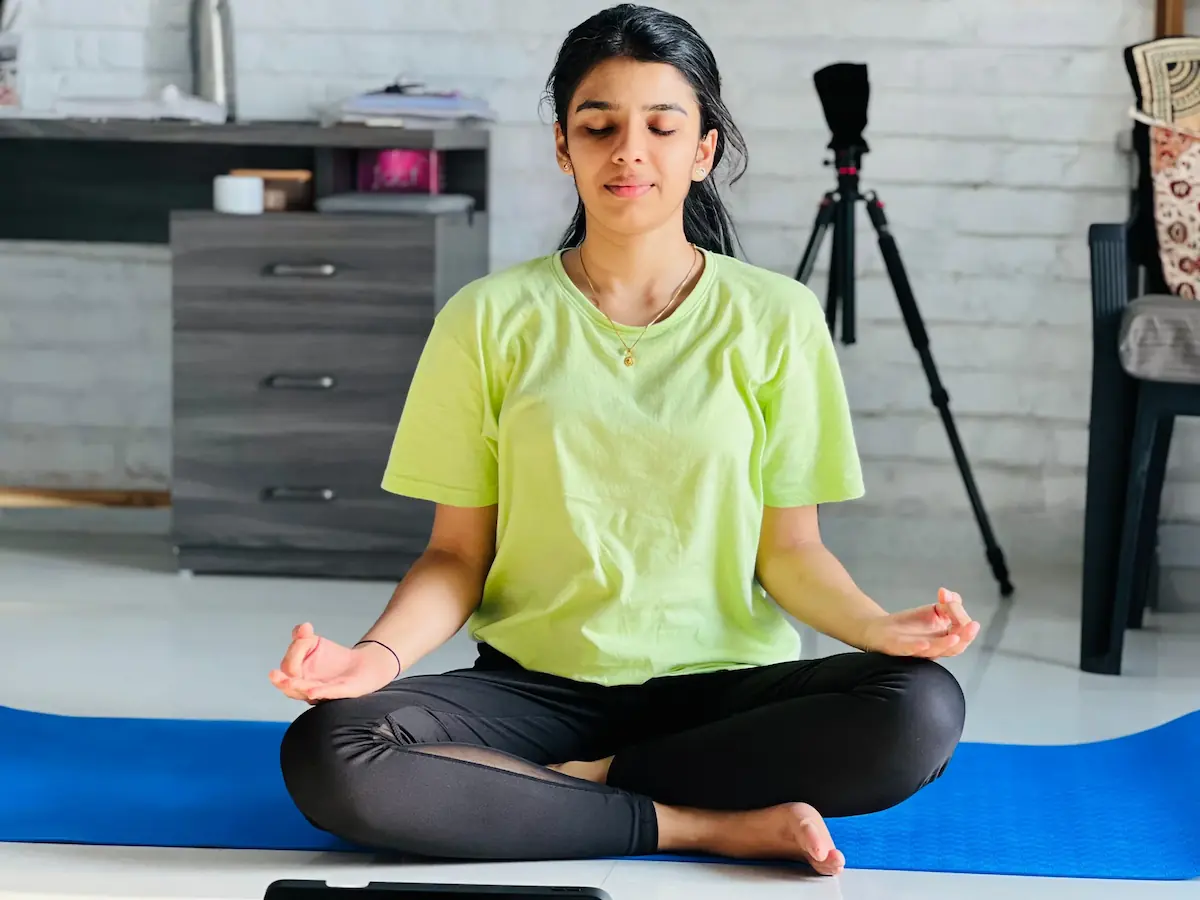Introduction: Start Your Journey at Home
International Yoga Day, celebrated on June 21, is a global reminder to pause, breathe, and reconnect with our body and mind. Whether you’re just beginning or picking it up again, practicing yoga from home is a great way to build flexibility, reduce stress, and invite calm into your daily routine. This year, instead of just watching others post their mats on social media, roll out yours and start with these 10 beginner-friendly yoga poses that nurture mindful living.
Tadasana (Mountain Pose)
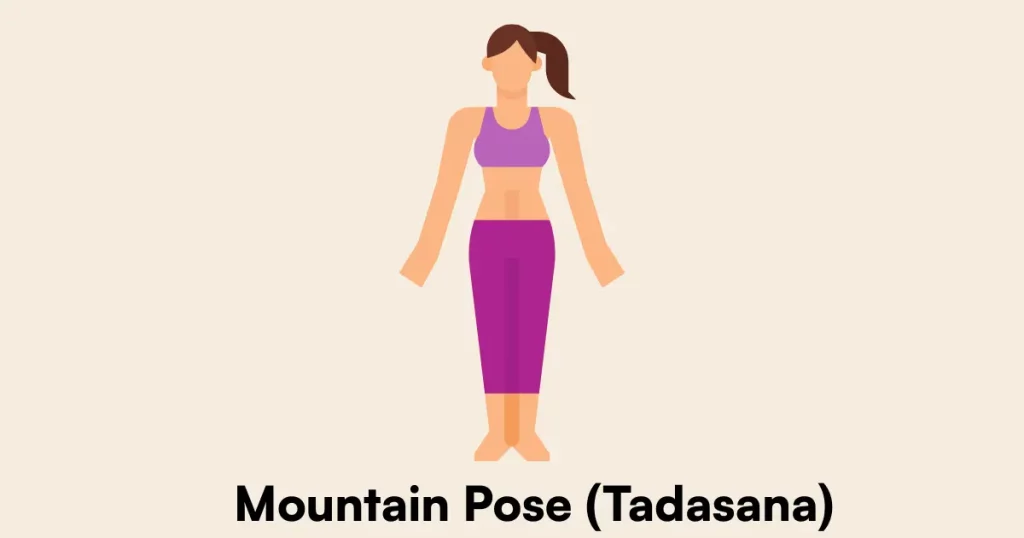
The foundation of all standing poses
Steps to Practice:
- Stand tall with feet together.
- Ground your feet, engage your thighs, and lift your chest.
- Arms by your side or palms together at heart center.
- Inhale deeply, lengthen the spine.
Benefits:
- Improves posture and stability
- Increases body awareness
Tips:
Avoid locking the knees. Keep a slight micro-bend.
Adho Mukha Svanasana (Downward-Facing Dog)
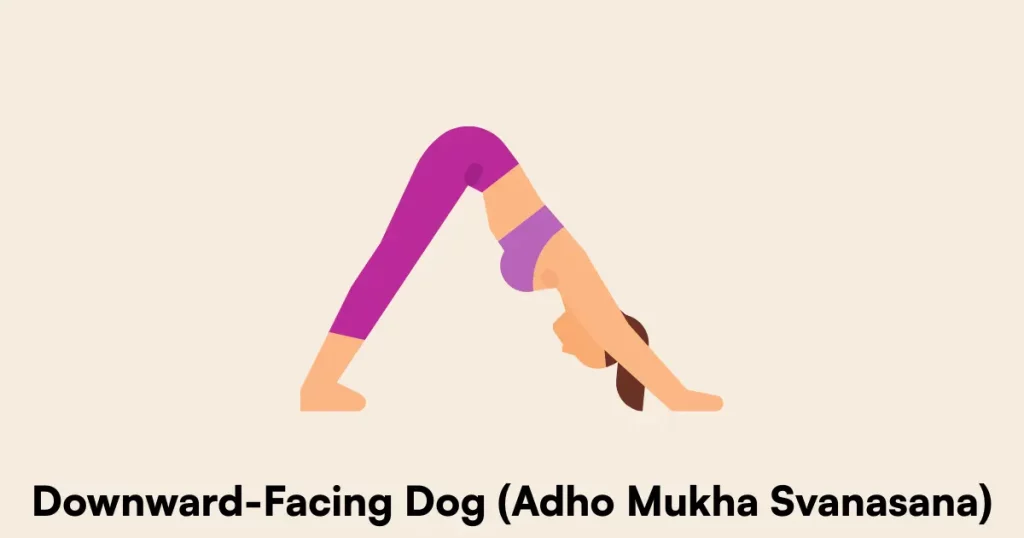
A rejuvenating full-body stretch
Steps to Practice:
- Start in a tabletop position.
- Tuck toes, lift hips toward the sky forming an inverted “V.”
- Keep knees slightly bent if needed.
- Relax your neck and breathe deeply.
Benefits:
- Strengthens arms and legs
- Calms the nervous system
Tips:
Bend your knees if your hamstrings feel tight
Bhujangasana (Cobra Pose)
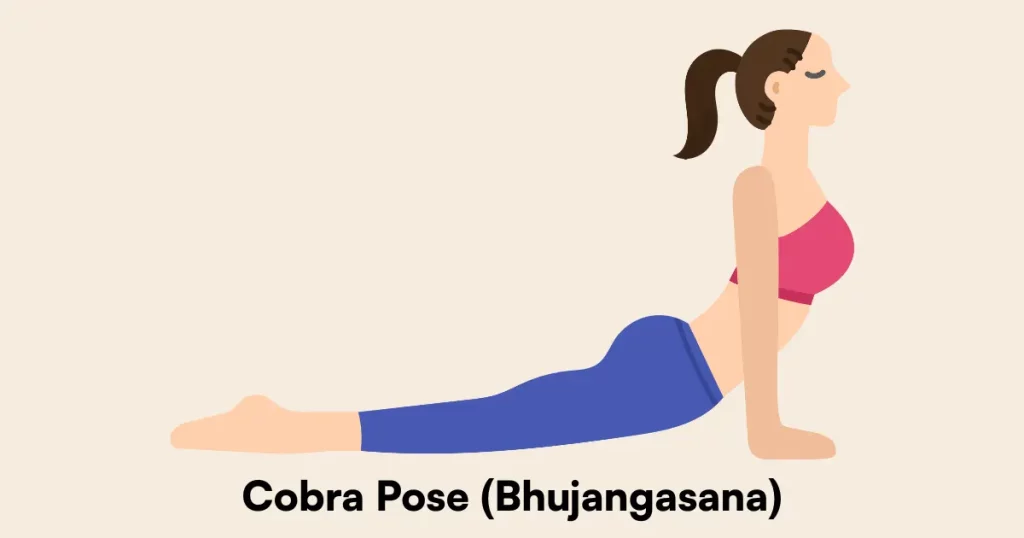
Heart-opener for better flexibility
Steps to Practice:
- Lie on your stomach with palms under shoulders.
- Press into hands and gently lift your chest.
- Keep elbows slightly bent and shoulders away from ears.
Benefits:
- Opens chest and lungs
- Eases back stiffness
Precautions:
Avoid if pregnant or dealing with recent abdominal surgery.
Balasana (Child’s Pose)
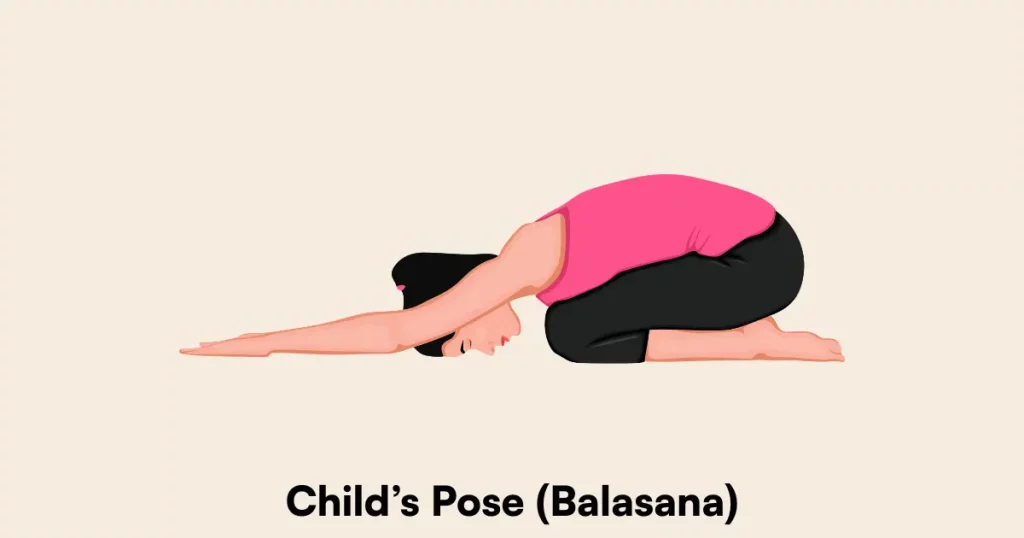
Your go-to resting pose
Steps to Practice:
- Kneel on the mat, big toes touching, knees apart.
- Sit back on heels and stretch arms forward.
- Rest your forehead on the mat and breathe deeply.
Benefits:
- Relieves back and neck tension
- Calms anxiety
Tips:
Place a pillow under your torso for extra support.
Virabhadrasana I (Warrior I Pose)
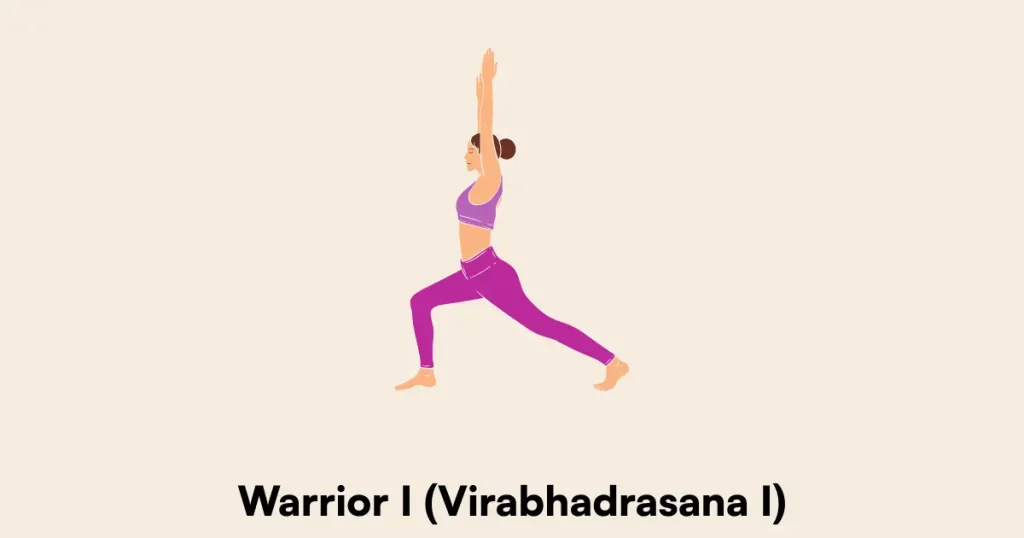
Ignite strength and focus
Steps to Practice:
- Step one foot forward into a lunge.
- Back foot turns slightly out.
- Raise arms overhead, palms facing each other.
- Bend front knee at 90 degrees.
Benefits:
- Strengthens legs and arms
- Builds concentration
Tips:
Ensure your front knee doesn’t go beyond the ankle.
Vrikshasana (Tree Pose)
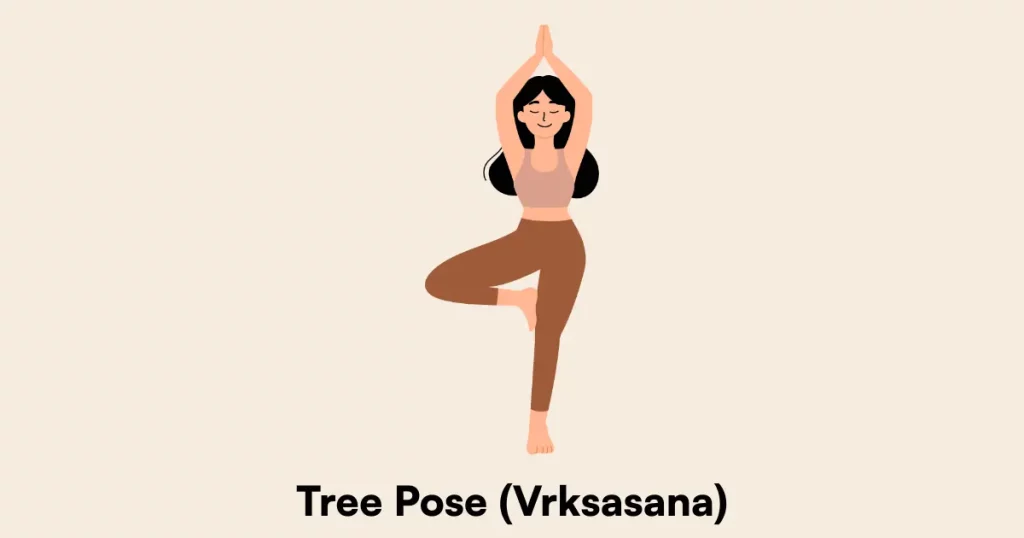
Find your inner and outer balance
Steps to Practice:
- Stand tall, shift weight to one leg.
- Place the sole of the other foot on the inner thigh or calf (avoid the knee).
- Bring palms together at heart center or overhead.
Benefits:
- Improves balance and stability
- Enhances focus
Tips:
Use a wall for support if needed.
Setu Bandhasana (Bridge Pose)
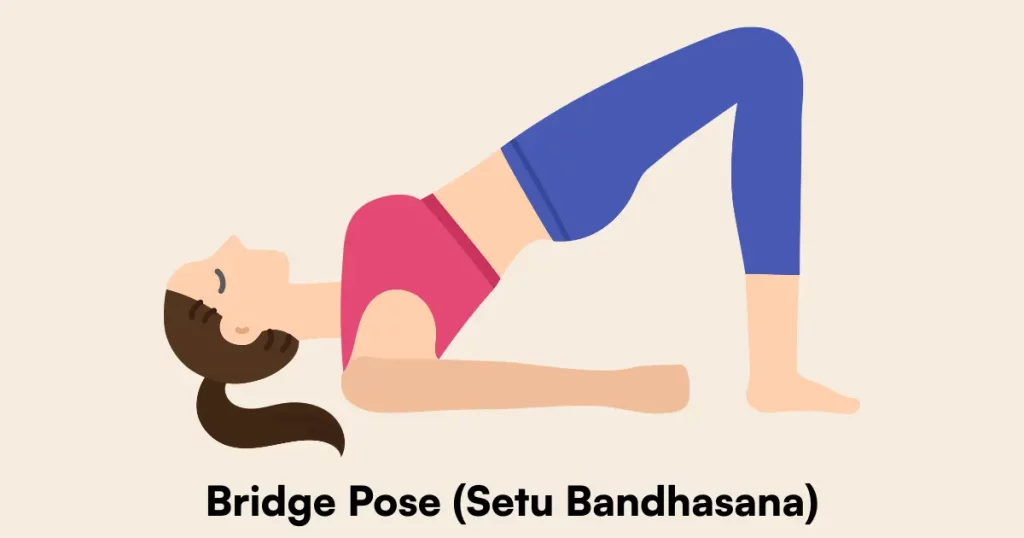
A gentle heart and hip opener
Steps to Practice:
- Lie on your back, bend knees, and place feet hip-width apart.
- Press into feet, lift hips toward the sky.
- Clasp hands under the body and press shoulders down.
Benefits:
- Strengthens the back and glutes
- Opens the chest
Precautions:
Avoid if you have neck or back injuries.
Sukhasana (Easy Pose with Breath Awareness)

A simple seated meditation posture
Steps to Practice:
- Sit cross-legged with a straight spine.
- Rest hands on knees or in your lap.
- Close your eyes and take deep, slow breaths.
Benefits:
- Calms the mind
- Prepares you for meditation
Tips:
Sit on a folded blanket if hips feel tight.
Marjariasana-Bitilasana (Cat-Cow Stretch)
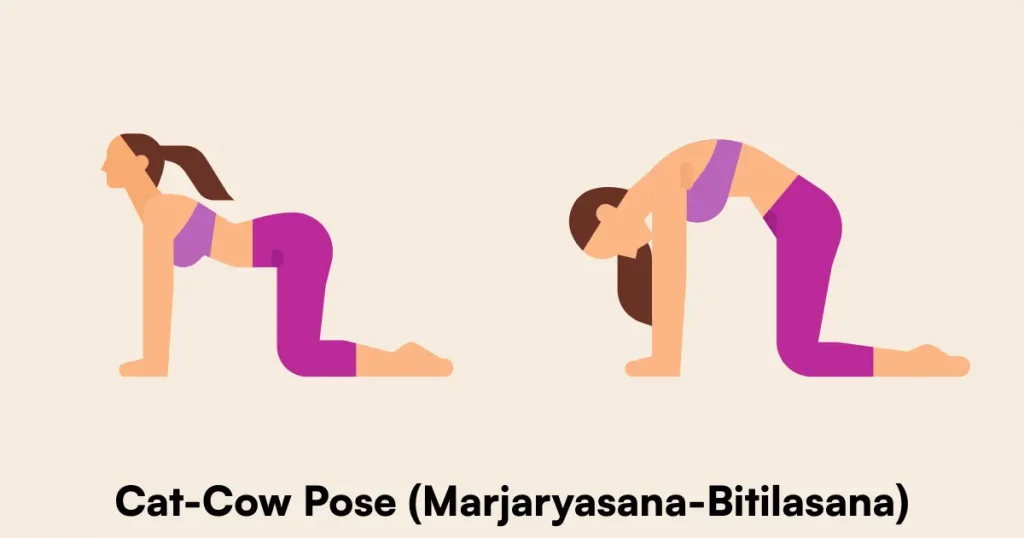
Gentle flow for spinal flexibility
Steps to Practice:
- Start on all fours.
- Inhale: arch your back (Cow), lift chest and tailbone.
- Exhale: round spine (Cat), tuck chin and pelvis.
- Continue this flow with breath.
Benefits:
- Improves spinal mobility
- Eases stress
Tips:
Move slowly and match breath with movement.
Shavasana (Corpse Pose)
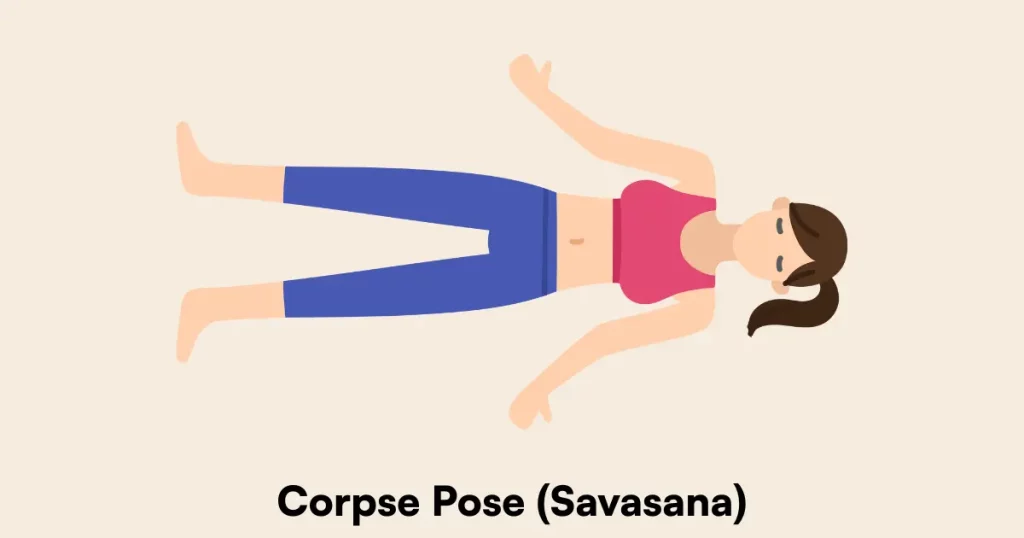
End your practice with stillness
Steps to Practice:
- Lie flat on your back, arms and legs relaxed.
- Close your eyes and breathe naturally.
- Stay here for 5–10 minutes.
Benefits:
- Deep relaxation
- Restores energy
Tips:
Use a cushion under knees if you feel lower back strain.
Read More: 7 Morning Yoga Asanas for Focus & Calmness
Conclusion: Make Yoga a Daily Celebration
Celebrating International Yoga Day 2025 doesn’t require anything fancy just your intention and a little time. Start small, stay consistent, and let each pose guide you toward clarity, strength, and inner peace. Whether you’re stretching at sunrise or meditating before bed, remember: yoga is more than movement it’s a lifestyle of mindful living.
Frequently Asked Questions (FAQs)
Q1. Can beginners do all these yoga poses?
Yes! All the poses listed are beginner-friendly and can be modified as needed.
Q2. How long should I hold each pose?
Start with 20–30 seconds and gradually increase to 1 minute as you become comfortable.
Q3. Do I need special equipment?
Just a yoga mat and comfortable clothing are enough. Props like blocks or cushions can help beginners.
Q4. When is the best time to practice yoga?
Morning is ideal, especially on Yoga Day! But anytime that fits your schedule is good consistency matters more.
Q5. Is it okay to skip poses I find difficult?
Yes. Always listen to your body. You can revisit difficult poses later with improved strength and flexibility.
